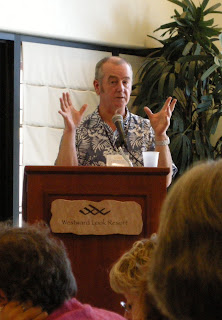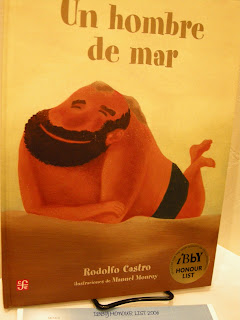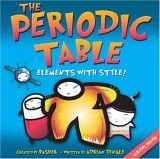The terms of the social contract in Dick and Jane’s world puts pressure on them to behave in certain ways. The constraints can make whatever they have to do to solve the story problem difficult, if not impossible. If Dick and Jane violate the social contract in their world, they pay a price for it.It is especially important in Fantasy and Science Fiction when writing about alternative worlds that you consider the demands social contracts impose on the people in them.
In writing historical novels, it is important to understand what the social contract of the time and place required. Morals and practices changed over time and across geography. Small desert tribes had a different social contract than societies in king-ruled Europe and those of hunter-gatherers in Africa.
Studies have suggested that groups of one-hundred or less are pretty good at self-regulation. There isn’t a need for organized law enforcement in such a small community because the members all know each other and are able to keep tabs on one another. If one of the members commits an act that is detrimental to the group, the other 99 are willing and able to correct or punish them. Even in a small community, there are rules that they follow to keep the peace.
It isn’t in the group’s best interest if they can’t trust one another. If someone is lying, stealing, killing, or lusting after someone else’s mate, conflict will ensue and the transgressor will be booted out. It is hard to survive in the world alone, especially if you suck at hunting or gathering.
In groups larger than one-hundred, it is imperative to have some form of social contract with rules that are enforceable and enforced. The golden rule of most societies can be boiled down into the loose statement: “Treat others the way you want to be treated.” This isn’t effective if you’re visiting a community of purple people eaters.
Ancient Egyptians had a long list of “I will not ...” statements in their Husia. Jews and Christians embraced commandments which included admonitions to not worship different gods or idols, to not lie or bear false witness against a neighbor, to not murder, commit adultery, steal, or covet their neighbor’s wife.
Hinduism’s rules of dharma encouraged patience, forgiveness, self control, honesty, sanctity, control of senses, reason, knowledge or learning, truthfulness, and absence of anger.
In your story world, your characters will be subject to the rules of their society's contract. If Dick breaks those rules, there will be consequences. He may fight to change the rules or reveal the dark side to one of his society’s rules.
It is considered a plot hole if you apply modern sensibilities to the people from a historic setting. That doesn’t mean you can’t take some artistic license. However, having Victorian girls behave like the cast from a modern reality TV show does not work for most readers, unless you are portraying an alternate universe in Science Fiction or adding a Fantasy twist.
Errors of this type will, at the very least, make the reader cringe. At worst, your book will go on the to-be-burned pile.
If you write fantasy or Science Fiction, develop your own ten commandments for your story world. How are they enforced? What are the consequences for breaking them? Are some infringements more serious than others? Are some ignored on a routine basis without consequence?
In The Hunger Games by Suzanne Collins, the citizens of District 12 aren’t supposed to hunt outside the fence, yet Gale and Katniss do so regularly. Because they transgress, Katniss is better prepared to survive the Hunger Games. Breaking the social contract benefitted her. Katniss and Peeta break the contract again at the end of their first Hunger Games by refusing to kill each other, which sets up the conflict for the second book in the series.
Think about your story. Have you directly or indirectly explored social contracts in your story world? Have you put it to work for you in terms of complicating your characters’ lives? Have you utilized transgressions and punishments?
For more information on crafting believable obstacles, pick up a copy of Story Building Blocks II: Crafting Believable Conflict in print or E-book version.
If I could give only one piece of advice to those who want to write for children and teens, it would be to find a good critique group and make a commitment to it. I value my critique group more than you can imagine. Some of us have been in it for more than 10 years, while others are fairly new. They are all amazing writers, and as we have evolved, we have learned what works for us. Most importantly, we have learned how to offer really useful and necessary critiques, which is definitely a skill that can be learned and perfected and which doesn't necessarily just happen.
How to find or form a critique group:
One easy way is to check out the SCBWI walk-in critique groups via the web site. These are walk-in groups, so you can simply arrive and check it out. You might find others with whom you'd like to start a regular group.
While on the web site, you can also contact one of our region's critique group coordinators to get their help in finding others near you.
Attend local writing events, including SCBWI meetings and conferences, where you might meet others to form a group or others who are looking for a new group member.
Post on the SCBWI Utah/southern Idaho Facebook page and see if others want to form a group with you.
How do critique groups work?
There are several logistical choices available to a group.
PLACE and FREQUENCY: Some groups meet weekly, others monthly. Some are online groups. The group might have to try different meeting options to find what works best for that unique group of people. My critique group meets in one another's homes. I've been in other groups that meet in a public place or the home of just one group member or a mentor.
MANUSCRIPT SUBMISSION: I've seen this issue handled dozens of ways. In one group we brought several copies of our submissions to the meeting, where each person would receive a copy to read along as the author read out loud. This was fun for me, as I love being read to, but it had some limitations as far as critiques. Reading aloud took up much of our meeting time, and the critiques usually weren't very in-depth, as the readers never had time to ponder or reread the piece. My current critique group sends in 1-2 chapters (we are all working on novels, so this works for us) about a week before the group meets. It is up to each group member to read all the submissions before coming to the meeting. Then we use our meeting time more efficiently, as we jump right into critiques. Some groups do only a few pages of each manuscript each time, while others will do large chunks. How you handle this depends on a lot of factors, such as how many people are in the group, how much each person is writing between meetings, and how much time you have during a meeting. My group meets on Saturday evenings, so we can take more or less time if we feel like it. A group I used to be in met on Wednesday evenings and had only two hours to get through about eight manuscripts, so we were very focused and limited.
NUMBER OF PEOPLE: I think the ideal size of a critique group is somewhere between 3-8 people. More than that is just unwieldy in terms of having enough time to give each person a useful critique. You want at least three people so you have a diversity of opinions. I value the varied opinions of my critique group members, because if they ALL agree, I am pretty certain what needs to be revised. And if they don't all agree, I can pick and choose which approach I might take.
HOW TO CRITIQUE: This is the crucial piece. Some people like to focus on commas and spelling. That's not critique. I suggest focusing on questions. If something brings up a question for a reader, that is useful information for the author. If you're writing a mystery, those questions may be exactly what you're going for. On the other hand, maybe you thought you were being really clear, but the critiquers' questions indicate you need to do some revising to get at the clarity you want. Another way to look at the big picture is to think about the main elements like character, setting, plot, world building, etc. Sometimes it's fun to bring some useful exercises or information from any conference or workshop you've attended and focus on that element in all the manuscripts. The "sandwich" critique is always a nice way to approach a work: say the things you like in the manuscript, then concentrate on problem areas, then end with more nice things.
CHOOSING/ADDING MEMBERS: Our critique group is straightforward and sometimes ruthless. We are all veteran critiquers who are used to the give and take of brutal critique (not mean or harsh, but just absolutely honest), and not everyone is up for that. Some people have less thick skins and require a softer approach. We screen any potential new members to make sure they are up for our kind of blunt critique. If everyone can be honest about what they are ready for, it helps. I find it's also helpful if all the members of the group are writing in the same genre--such as picture books or YA. One magazine writer in a group I used to be in felt like her two pages each month versus everyone else's full chapter was just not a fair give and take. She was not the best fit for the group.
My best advice is to find a group of fellow children's writers and jump in. Be patient with each other and with the process as you find your way as a unit. If you feel like you don't know what you're doing, maybe occasionally bring in a more experienced author for some mentoring, or do some research. There are plenty of books on starting critique groups. Attending conferences and workshops will also teach you skills that will help you improve your critiquing skills.
by Neysa CM Jensen
in Boise, Idaho
4 Stars We're All Different But We're All Kitty Cats Peter Goodman Nicholas Milano No. Pages: 4 Ages: 4+ ................... Inside Jacket: “My name is Carlos and I have no fur.” A kitty with no fur? How strange, thought the other cat, laughing and giggling at Carlos. Hurt and embarrassed in front of the class, [...]
So, while I was buried under that mountain called "real life," I missed a totally important announcement:
The Cybil winners were announced. I had the most awesomest extreme pleasure to serve as one of the judges for Middle Grade/Young Adult nonfiction.
So, in today's super-long post, I'm giving the run-down of all of our nominees-- they were all fantastic!!!
But, it's Friday, so first, a poem:

A Song for Alef
Alef the letter
Is a refugee.
From paper
To paper
He knows
No home...
To read the rest, you'll have to read this year's winner,
Tasting the Sky: A Palestinian Childhood Ibtisam Barakat
Ibtisam was 3 1/2 when the Six Day war forced her family to fell from their home in the West Bank. After the harrowing experience of being seperated from her family in the confused mob, she finds them and they manage to escape to Jordan.
The Barakat family live as refugees in shelters, in a classroom, and on a new friend's kitchen floor for nearly 5 months before being allowed back home. But, once home, there is still shooting, still fighting. It's not safe, so it's to an orphanage. There, here brothers are sent away for brawling.
Eventually, they move. Through it all, Barakat's solace is language and her love of the letter alef--the first letter of the alphabet in Arabic and Hebrew.
But, underneath it all,
Tasting the Sky is a story of growing up, of losing a pet and sibling rivalry, of making friends and worrying about school, of moving and saying goodbye. While there is sadness in Barakat's tale, there is no anger or hatred, just a hope for peace. And that's a hope we call all share.
Who Was First?: Discovering the Americas Russell Freedman
Dude, it's Russel Freedman, you know it rocks.
This time, the master of children's non-fic takes on the discovery of America. He starts with Christopher Columbus and then works backwards through time, discussing who discovered America before Columbus, who discovered him before that and on and on. He also devotes a fair chunk to current theory and theories we've discarded over the years.
It had a great design--good use of white space and lots of pictures and maps. However, some of the illustration captions were a bit confusing.
He spends a whopping 10 pages discussing Gavin Menzies's theory that the Chinese discovered the US in
1421. Although Freedman gives both sides of the debate, it seems like a lot of page space to devote to a theory that not a lot of historians credit.
I was most impressed by Freedman's sources and his amazing ability to take very complex, academic arguments and make them accessible to a children's audience without dumbing them down.
The Periodic Table: Elements with Style Adrian Dingle
This is a fun look at the elements. Going through the periodic table, it presents basic information about selected elements including atomic weight, color, date of discovery as well as what it is used for and random fun facts. All of this information is accompanied by a fun drawing of the element, looking awesome and anthropomorphized. Where it might not be the best reference book, it's a really fun book for browsing through and learning about the elements. It also has an awesome pull out poster of the periodic table with all the cool cartoon guys in their little squares. 2 complaints-- not all of the elements are covered in the book. Also, when discussing radium, there was no mention of radiation (which seems like a pretty big oversight!) and when discussing bismuth, there was no mention of Pepto (a lesser oversight, but one that would have been fun to include!)
Ok, so that's 3 of the 6 nominees. Stay tuned for more!
Oh! and Poetry Friday round-up is hosted by the ever-lovely Kelly over at
Writing and Ruminating!
 Things that happened in Tucson:
Things that happened in Tucson:
I felt in love with a saguaro. It stood tall and valiant, enduring the fiery sun without complain. When I saw it for the first time my heart was taken.
I was a USBBY opener speaker. Afterwards I was declared a skin shedder, like the Tucson lizards and snakes.
Things I heard in Tucson:
“No one wants to be wounded by story. People want to be healed by story."
"You cannot blame people and expect them to help you."
“The job of an artist is to take poison and turn it into medicine.”
“Every voice matters. Every voice has a right to speak. Of course, we don’t
have to listen.”
-
Monty Roessel "How do you become and artist? The secret is finding your own place and making it sacred.”
-
Shonto Begay "Writing is not about the big things, but about the small things.”
“We are imperfect beings moving towards perfection.”
“Writing is about vision. It is about seeing things.”
“I am a barbarian. I am a savage!”
-
David Almond Things I saw in Tucson:
Things I saw in Tucson:Liborio, tattooed skin, big shoulders small legs, unshaved face, jumping into the ocean waters as shown in the picture book
Un Hombre De Mar written by Rodolfo Castro, illustrated by
Manuel Monroy, an
IBBY Honour Book. A most poetic sight.
The story in Spanish reads something like this: “Liborio has sea water inside his veins. Waters from the seven legendary seas. With little fish and everything, with vastness, shipwrecks, tides, and swells.”
And here is Liborio on the cover of his book, a man who doesn’t want to be good or bad, but only be like the sea.

Ah, Liborio, I think he could be my uncle.
Ibtisam Barakat wrote the wonderful book TASTING THE SKY: A Palestinian Childhood.
It was one of the rare books that I've read in one night.
If you're anywhere near the workshop, it would be well worth attending.
Subject: WRITE YOUR LIFE workshop -- September 22 + 23, 2007
WITE YOUR LIFE
========
A weekend workshop
September 22 + 23, 2007
10 a.m. - 5 p.m. Saturday
10 a.m. - 3 p.m. Sunday
Led by award-winning Author and poet Ibtisam Barakat.
Ibtisam is the author of
TASTING THE SKY: A Palestinian Childhood,
Farrar, Straus and Giroux (2007)
Nationally, Booklist named TASTING one of the Top 10 biographies
for youth in 2007.
Locally, Tasting the Sky is the #1 best selling book at
the Peace Nook in Columbia
for the past five months).
Cost of WRITE YOUR LIFE weekend workshop:$250.
Location Access Arts -- 1724 McAlester, Columbia, MO 65201.
To register and for more info:
Tel (573) 442-9213
Cell (573) 808 – 1936
or Email: [email protected]
What former participants wrote:
"This workshop is absolutely phenomenal. My decision
to attend has been one of the most positive and
valuable decisions that I could have made for myself.
I developed, experienced and changed.
It's very empowering."- Tashel Bordere"I enjoyed this workshop. I learned a great deal and
felt supported emotionally in those areas I felt I
could not face up to. I discovered a few things about
myself and others. Thank you for doing this work. It
is a wonderful gift to this community and to the
world!! I am so glad I came."- Becky Matsiga
"Thank you for a great workshop! WRITE YOUR LIFE
has been a truly wonderful experience for me.
I will recommend it to my friends."- Steve Buchels.








 Things that happened in Tucson:
Things that happened in Tucson:

Love the poem choice and the reviews!
Tasting the Sky is such a pretty book. It is one of our Cafe book titles (middle school book group at school during lunch)
Kelly-- Thanks for hosting the roundup! I'm glad you liked it!
Susan-- It's such a fantastic title! I would love to hear how your kids like it. Plus, you can tell them it won the Cybil!
Wow. Lots of exclamation points this morning. !!!!!!!!!!!
it has been a hard sell, not exactly the type of book that most middle schoolers wants to read for pleasure. however, those that have read it seem to like it...it's just a matter of convincing them to try it out!!
ugh, that was good grammar. your explanation points must have blinded me.